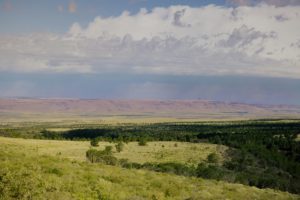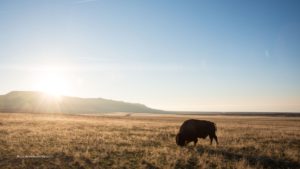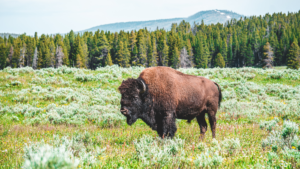For Immediate Release
April 2, 2018
Contact:
Kristin Ruether, Western Watersheds Project, (208) 440-1930
Brooks Fahy, Predator Defense, (541) 520-6003
Dr. Robert Wielgus, Wolf Researcher, (509) 595-1232
Event to Feature Documentaries on Profanity Peak Wolf Killings, Colorado Reintroductions
KETCHUM, Ida. – Two environmental groups, Predator Defense and Western Watersheds Project, will jointly host a public presentation and forum next Tuesday in Ketchum titled “Returning the Wolf to the Mountains.” The event will feature two documentary short films on current wolf issues on western public lands.
The first film, The Profanity Peak Pack: Set Up and Sold Out, documents the fate of wolves from a pack that became established on the public lands of northeastern Washington state, only to be targeted for death at the behest of local ranchers.
“This film is accurate and profound in its treatment of the wolf-livestock issue,” said Dr. Robert Wielgus, a scientific researcher with 35 years of experience in studying large carnivores, including grizzly bears, black bears, mountain lions, and wolves. In the case of the Profanity Peak Pack, “This rancher chose not to use proactive measures to reduce livestock depredation. Many of the ranchers in this area were cooperative, but some refused, because they want to kill wolves.”
“The slaughter of the Profanity Peak wolf pack is emblematic of everything that is wrong with wolf management in the United States,” said Brooks Fahy, filmmaker and executive director of Predator Defense. “It’s mind-boggling that livestock almost always gets priority over native species like wolves on public lands. If wolves can’t exist on these lands, then where?”
A similar story has unfolded in the Wood River Valley. In 2007, the Phantom Hill pack became established, and set up a territory in the Wood River Valley, to the delight of local residents and wildlife lovers, and to the consternation of sheep ranchers who grazed their livestock on the Salmon-Challis National Forest. But shootings and other factors eliminated the pack by 2013.
“Because wolves are a wide-ranging species, little is gained by coexisting with wolves in one area and killing them in another part of their territory,” said Erik Molvar, executive director of Western Watersheds Project. “We support non-lethal approaches to reducing wolf-livestock conflicts, and the renewed disappearance of wolves in the Wood River Valley shows that conflicts between the livestock industry and native wildlife continue to be a major environmental problem.”
A second short film, Canis lupus Colorado, highlights the value of returning wolves to the Southern Rockies. The films will be accompanied by brief presentations by Dr. Wielgus and Mr. Molvar, and an opportunity for the audience to discuss how wolf conservation intersects with the management of public lands.
The event will be held at 7 pm on Tuesday, April 10th at the Community Library in Ketchum. It is free of charge and open to the public.






